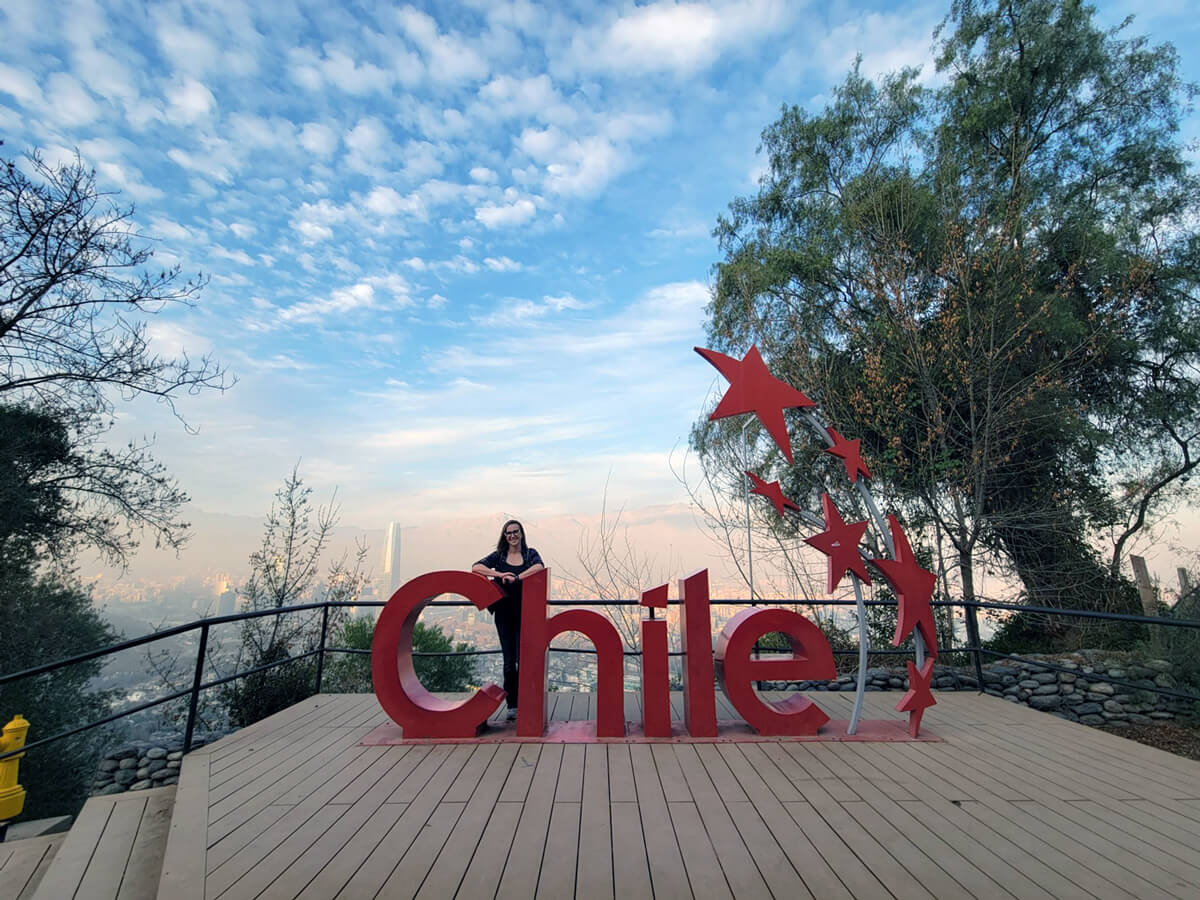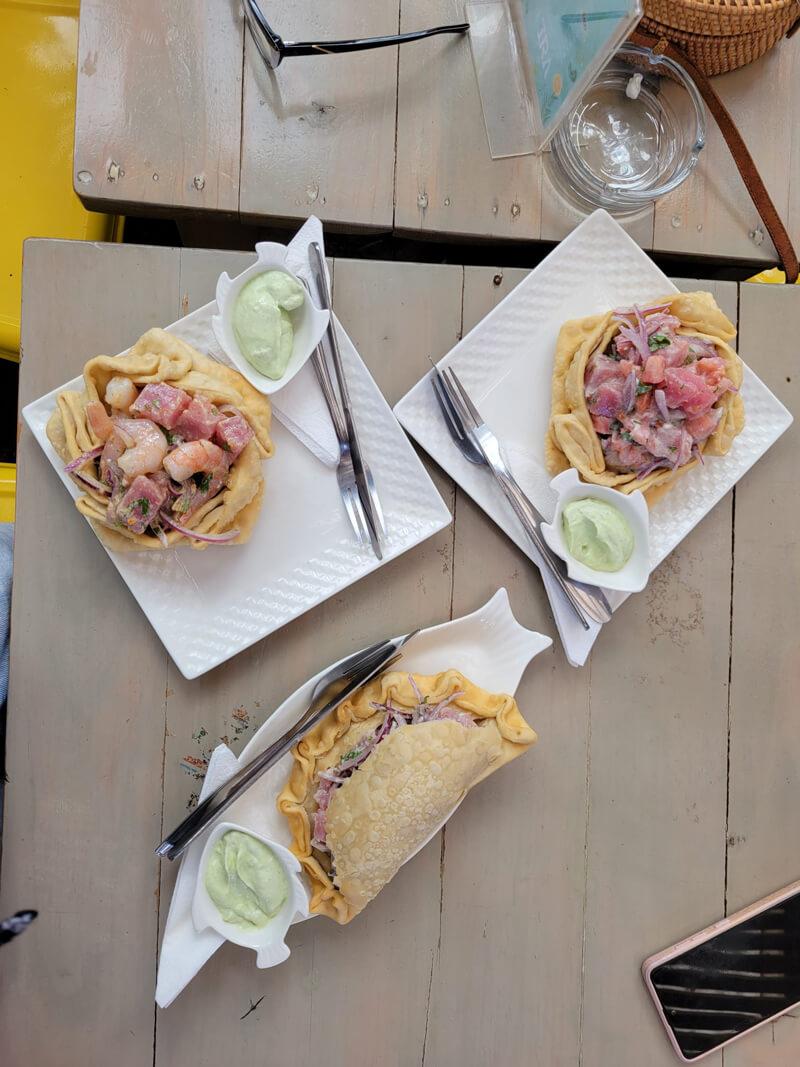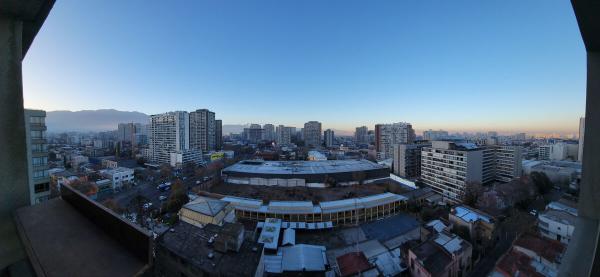My name is Caroline Rakus-Wojciechowski, and I am a GW UNESCO Fellow for the summer 2023 cohort. I am excited to be completing a three-month in-person fellowship with the Monitoring and Planning of Education unit at the UNESCO Regional Bureau of Education for Latin America and the Caribbean (OREALC).
During my first month in the office, I focused on understanding the role the Santiago office and the Monitoring and Planning of Education unit played within the region. OREALC plays a dual role in serving as the National Representation of UNESCO in Chile and as the Regional Representation for Education in Latin America and the Caribbean for advancing Sustainable Development Goal 4 (SDG 4) - Education 2030. The purpose of SDG 4 is to ensure inclusive and equitable quality education and promote lifelong learning opportunities for all.
It is my first time speaking Spanish at length since 2018. Admittedly, it is more challenging than I anticipated – Chilean Spanish is difficult to master, ¿cachai? – but I am glad to be abroad and reacquainting myself with the language. I live in Santiago's Providencia, a bustling neighborhood that is a metro-stop away from beautiful hikes up Cerro San Cristobal or Cerro Santa Lucia, a variety of museums and art galleries, and other bustling neighborhoods. Santiago is also an ideal location for several day trips, such as Cajón del Maipo, Valparaíso, Viña del Mar, and many distilleries and vineyards. I’m organizing a trip to Casablanca with some of my colleagues in August!
Enjoying the classic Chilean “Mote con Huesillo” after a long hike
Casa Chocolate, San José de Maipo
It’s also an exciting time to be in the office. The cultural monitoring team is completing its diagnostic report for the state of conservation in Rapa Nui, more commonly known as Easter Island (Isla de Pascua). In my penultimate week of this internship, I am making the pilgrimage to this UNESCO heritage site with an air of nostalgia. By this, I refer to how I closed out my B.A. in Anthropology by going to an archaeological field school in San Jose de Moro, Peru. Now, I get to parallel this undergraduate experience by paying homage to Rapa Nui as I finish my M.A. in the International Education Program.
As for my work with UNESCO OREALC, I am supporting the Monitoring and Planning of Education unit in developing guidance for inclusion in writing regional reports and in research on the education systems of Bolivia, Guatemala, Honduras, Nicaragua, and Paraguay. I also support the Cultural Heritage unit in drafting a proposed theoretical framework for the Regional Steering Committee, contributing my knowledge of comparative and international education theory. Finally, I support the Education and Human Mobility for the Latin America and the Caribbean Region team with its online learning management system by updating and disseminating resources.
I am excited about this opportunity to contribute to the field of educational planning, monitoring, and evaluation because it ensures that international educational development objectives are being met and that interventions are serving the needs of beneficiaries. As I complete my M.A. degree, I consider the international best practices and opportunities to which I can contribute to making quality education accessible to all youth globally and how this experience plays a role in my career decisions.
I am grateful to George Washington University for making it possible to be a part of this incredible fellowship and to the UNESCO Santiago Regional Bureau of Education for Latin America and the Caribbean for giving me the opportunity to work alongside such a wonderful team and obtain experience working in the field of educational planning and evaluation. I look forward to learning much during my time here!
¡Chao y hasta pronto!
Caroline is an M.A. candidate in the International Education Program at GSEHD, focusing on improving access and quality of education for marginalized populations and youth in emergencies.








